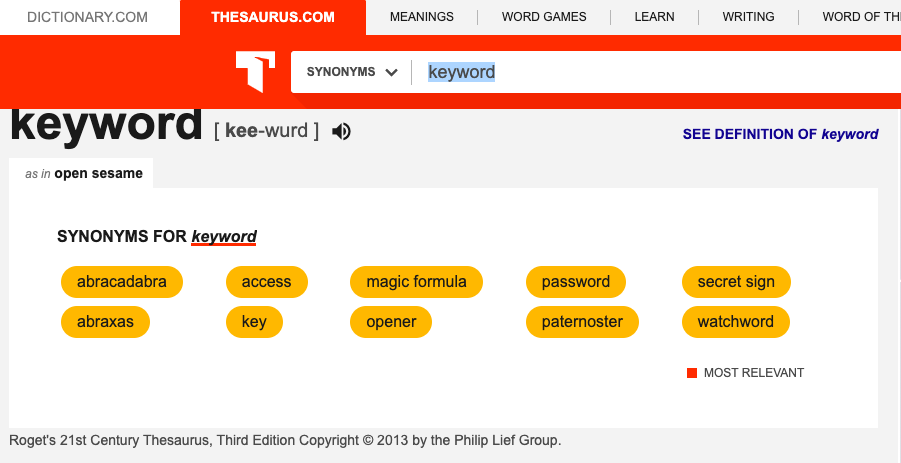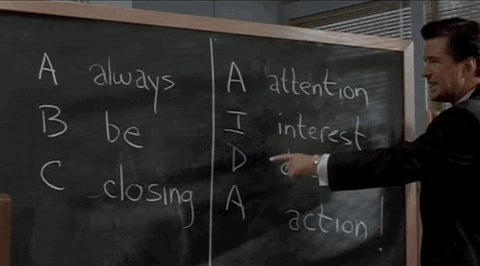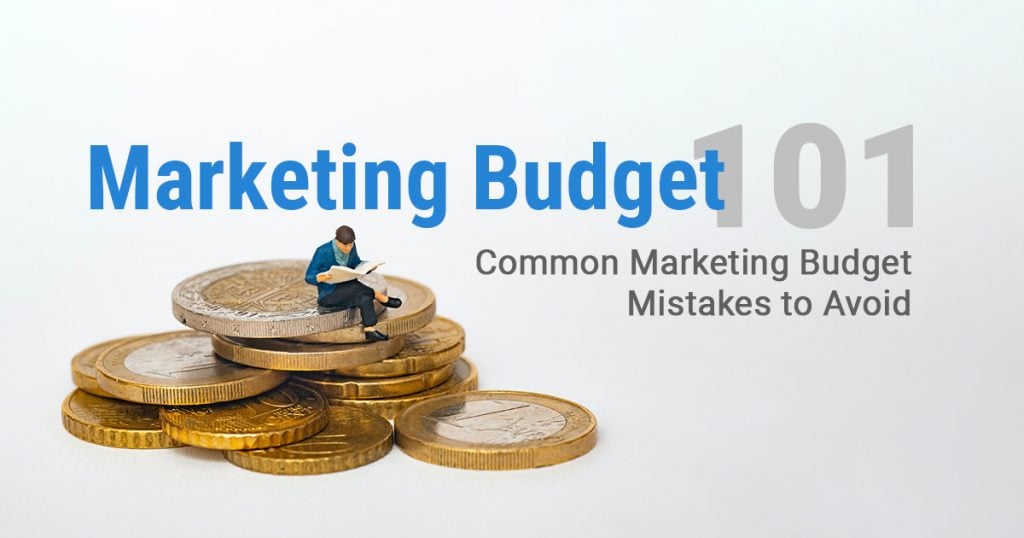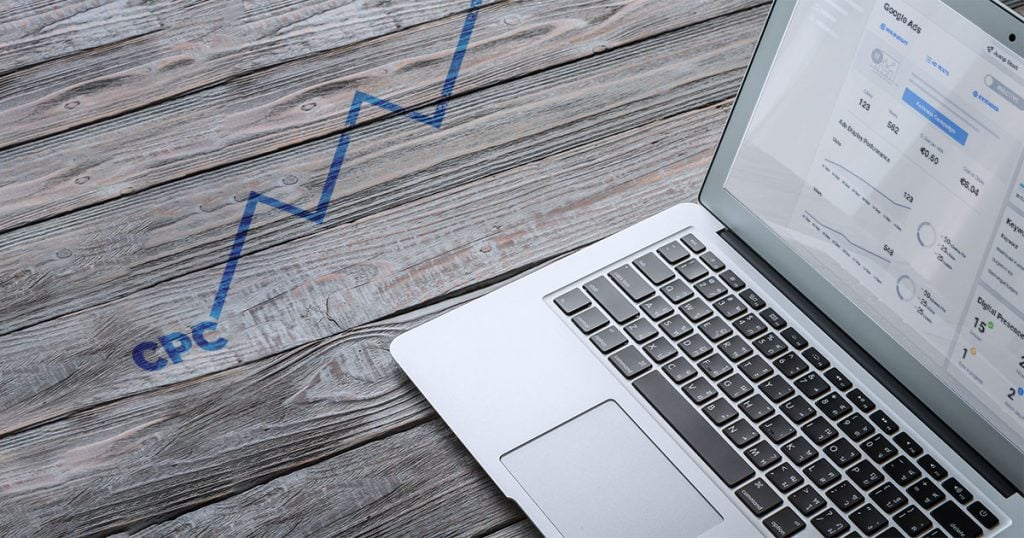We’ve all been there – in the meeting where someone “important” seems to be talking around in circles. Saying lots of big, fancy, important-sounding words, yet not telling you anything of value you need to do your job. Google Ads consultants often overuse Google Ads terms lingo in order to appear capable in front of clients.

But how can you show both your team and clients that you actually know what you’re talking about without overusing jargon?
The trick is to use it when appropriate. Kinda like keywords for SEM. *wink* That’s not all though, Google Ads lingo denotes specific functions within Google Marketing Platform so sometimes you have no choice but to use Google Ads jargon.
Yes, you should definitely know all the Google Ads lingo out there so you understand what is going, but as a Google Ads consultant, you should also be able to explain these terms and find alternates so as not to overwhelm your clients.
Let’s take a look at some of these and see if we can find other words to replace this worn-out Google Ads lingo when working with clients.
The Anatomy of Google Ads: General Terms & Phrases
At the most basic level, Google Ads get you to the top of the Google results page for specific keywords (more on that later). But these ads have specific parts to them. Text ads have three parts: Headline, display URL, and ad copy.
Headline – The headline is what you see at the top of the ad; it’s a succinct description of what the user is looking for. You want this part to answer the problem the user is looking to solve.
Alternate: header, H1
Ad copy – This is a descriptive text that explains what users can find if they click on your ad. You need this to answer their search query and be compelling enough (in a limited amount of space) to entice the user to click.
If you a looking for epic ad copy ideas, that will blow any “Google Ads Consultant” away, you can see our article of the best Google Ads Copy. (examples included!)
Alternate: text or display text
Display URL – This is the URL that will appear next to the [Ad] sign to show the user where they are being redirected. Let’s not confuse this with the destination URL, however, because although they can be the same, they don’t have to be. Why? Because if you’re using a UTM, you might not want that to be what shows up in the ad as it may be confusing to non-marketers.
Alternate: URL (though you’ll want to explain the difference between the two)
Call to action (CTA) – Technically, in a Google Ads ad, the CTA will be to click on the ad and drive them to your website. However, it may also be they are looking to contact a business similar to yours by phone or visit in person, and that’s where the ad extensions come in.
Alternate: action
Keyword Google Ads Terms & Phrases
Even non-marketers know about keywords when it comes to Google. As a user, it’s what you type in the search bar; as a Google Ads consultant, it’s what you use to get your clients found.
But is there anything more jargon-y than keywords? When you’re talking about SEO, it’s the Mecca of Google Ads lingo.
Within the general world of keywords, there are different types.
Broad-match keywords – Include synonyms, alternative spelling, similar words/phrases. Although these will prompt your ads to appear, their broadness means you’ll get lots of search results that don’t translate to your ad.
Exact- or phrase-match keywords – You use specific words or phrases to prompt your ad. Because it’s an exact match, you will have a smaller pool of results, but they will all be ideal matches.
Search volume – This indicates the number of searches made in Google within a defined timeframe. It will help you determine how popular your keyword selection is with your audience.
Quality score – On a scale from 1 to 10, your ad will be rated on the quality of your keywords and landing page. The higher the score, the (potential) lower the Google Ads rate. The lesson: make sure you’re serving up quality content and the Google Gods will reward you.
Alternates: unfortunately, these terms are so specific, there aren’t any alternatives. Even thesaurus.com (per Roget’s 21st Century Thesaurus), lists “abracadabra” as a synonym which means… we’re stuck with it for now. Unless as a Google Ads consultant you’d like to test out “abracadabra” we’re here for it. Let us know how that works out.

Google Ads Campaign-Related Terms & Phrases
Once you’ve created your ad, you need to create a Google Ads campaign. As a Google Ads consultant, you can think of it as the backend operations of your ads; it’s how the Google machine will know when and where to serve your ads, as well as the costs (see next section).
Campaign – In advertising, a campaign is an advertisement (or series of ads) that share the same singular goal. Within the Google Ads world, your campaign is specifically the who, what, where, when, and how much.
Ad groups – As part of your campaign, you can have several ad groups which can be categorized by theme or products, etc. This only applies if you have more than one ad.
Campaign type – There are two types of Google Ads: search and display. The former is when someone types in a search in the search engine, whereas the latter is when your ad appears on other websites. When you create your campaign, you can opt for search network only, display network only, or a combo of both (“search network with display select”).
Alternate: ad location, ad type
Landing page – This is where you are directing users to go if they click on your ad. As previously explained, your display and destination URLs don’t necessarily have to match, however, the landing page needs to deliver on the promise of your ad. That is, if you’re keywords are “blue striped socks,” the landing page should have blue striped socks and not red polka dots. That would make for an unhappy user. It’s your job, as the expert and Google Ads consultant, to make sure the landing page matches up with the query.
Alternate: sales page (though this could also mean something else)
Cookie(s) – Not the chocolate chip or oatmeal raisin variety, but digital cookies are the bits of information provided by your browser to identify your computer network. This is how digital marketers are able to retarget visitors.
No alternates since this is very specific, though I think we’re all getting tired of seeing jokes, Amiright?

Cost-Related Terms & Phrases in Google Ads
It goes without saying that ads cost money (otherwise, it would be PR or content). Understanding how Google Ads works in terms of cost is important because you’ll have to create a campaign and daily budgets.
Bidding strategy – At the most basic level, you have to bid on Google Ads based on your keywords. Selecting the goal of your ads means if you want clicks, impressions, conversions, views (for videos). Once you set that up, it’s time to actually bid. That is, how much you’re willing to pay for each positive outcome goal. Whoever is responsible for setting up the ads, as the Google Ads consultant, to make sure the bidding strategy matches up with the marketing goals of the campaign.
Cost-Per-Click (CPC) or Pay-Per-Click (PPC) – These are often interchangeable, and are basically your cost each time someone interacts with your ad. i.e., click.
Alternates: budget, costs
Ad rank – Without going into too much detail, this is a formula Google uses to determine where your ad appears in relation to other ads for the same search terms. It uses your quality score and maximum bid.
Google Ads Analytics Terms & Phrases
Ahh, good old Google Analytics. Where would we be without thee? It’s arguably the most important Google Ads lingo. Understanding how your ads are performing is of the utmost importance. This is one huge advantage digital advertising has over traditional since you can optimize and improve as you go along (more on that shortly).
Audience – Who you are targeting with the ads. You can get as specific or as broad as you’d like with these.
Alternates: customers, clients, ideal market
Bounce – Think of this as how kids’ll say “I’m outty.” (OK, I may still say that too.) It’s the person who did nothing on your page, namely click on any links or go to other pages on your website. They just peaced out.

Impressions – How many times your ad is shown. If your goal is impressions, this number will be important. But if your goal are clicks, then this number helps calculate that.
Alternates: eyeballs (no, seriously, “how many eyeballs have seen your ad)
Click-Through-Rate (CTR) – This is a percentage and it’s the number of times your ad was clicked divided by the impressions.
Alternates: you could just say clicks
Google Tag Manager (GTM) – Remember in the anatomy section we shared the difference between display and destination URLs? Well, the GTM is where you can create and track all your tags to see how your campaigns are faring.
Google Ads Optimization Terms & Phrases
We discussed briefly the benefit of digital advertising is you get to see, in real-time, how your ads are doing. This allows you to do several things, namely to improve your ad’s performance. This is optimization.
Conversions – When a user takes an action based on your goals (i.e., clicks, watches the video, signs up, buys, etc.). This should not be confused with conversion rate (or CR), which is a percentage of the actions taken divided by the total sessions on your site.
Split testing – This is testing different options for your ads to see which perform better. You typically only test one part of the ad at a time, e.g. the headline, the copy, the CTA, etc. To paraphrase Blake from Glengarry Glen Ross would say, “ABC: Always Be Converting.”
Alternate: A/B testing

There you have it, the Google Ads lingo that will surely buzz off even the best Google Ads consultants out there.
If you’re a Google Ads consultant or entrepreneur who wants to learn more about Google Ads lingo, download our Google Analytics lingo whitepaper and get ready to roll up your sleeves with jargon aplenty.



